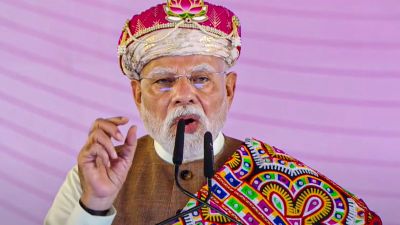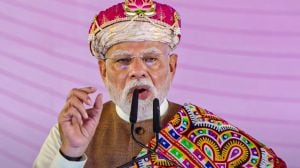Troubled airmen Strife in the IAF epitomises non-governance
When a soldier signs up for the responsibility of partaking in national security, he forfeits the right to free speech and the right to ass...

When a soldier signs up for the responsibility of partaking in national security, he forfeits the right to free speech and the right to assembly. These two rights are fundamental to a democracy, but not to its armed forces. So when both are beginning to be violated by those in uniform, it becomes obvious that the condition within the Air Force is indeed grave. There is something seriously amiss in the Air Force, but nobody in government is concerned enough to undo the damage. A government committed to the promotion of sectional interests has done precisely that with the Air Force. For the first time in its history, the force is displaying signs of disunity, indiscipline and a deterioration of its ethos. Only the notional governance that New Delhi has been providing to this country can be held responsible for this decay. The flip-flop by the Government of India over implementing the recommendations of the Fifth Pay Commission encouraged the mushrooming of sundry unions and such other pressure groups. Instigated by some ministers of this government these groups resorted to blatant blackmail tactics. When the Union Government had lost its sense of proportion, and balance, it was inevitable that union interests would prevail over national ones. This lesson has not been lost on the soldiers.
They too have seen the unions of government employees triumph in their stand off vis-a-vis the government. While it repeatedly delayed accepting the reviewed proposals for the armed forces, New Delhi was allowing the various unions to indulge in public demonstration of their demands. The language was allowed to be raised to threatening levels. And, above all, ministers acquiesced in such tactics. Soldiers, sailors and airmen watched these parades of blackmail and threats, but with dismay. They too had grievances, and most of them based on situations which are genuinely life-threatening. Initially it was just the top brass that kept up the pressure for a judicious implementation of the pay commission recommendations. But the government dilly-dallied with the armed forces, whilst accepting those of the civilian unions.
When the cabinet finally did accept the reviewed recommendations, what it achieved was to create a blatantly dysfunctional pay package. Combatants of the Army, who daily face enemy and militant fire, are now worse off than aviators of the three services. And most bizarre of all is the fact that the engineers who maintain the aircraft, and the fighter controllers who guide them through the air, are now so badly off in comparison to those who fly, that they are airing their grievances. A fancy Rs 200 crore aircraft is of no use if those keeping them flying are disgruntled, dissatisfied and unmotivated. The government decision has now created sharp divisions within the Air Force. And the root cause of all this mayhem is the absence of a sense of consistency within the government, and an appreciation of ground conditions by its Minister of Defence. Making good sound bites is all very well, but when it comes to actually managing an armed force, it takes much more than mere platitudes. The Union Government has a crisis on its hands, but it requires a sense of governance to realise that, to manage, and to overcome the crisis.
Photos


- 01
- 02
- 03
- 04
- 05





























